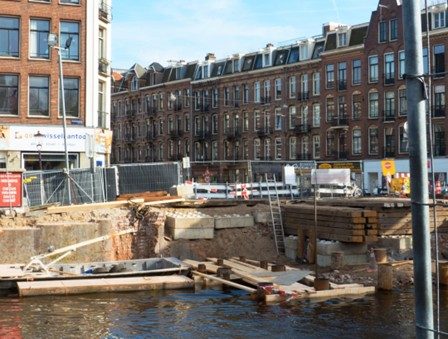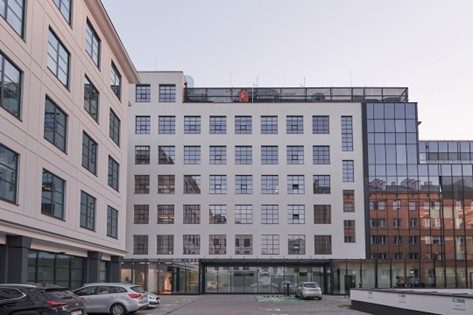
Key Differences Every Toronto Homeowner Should Know
Over the years, UPPERAVENUE Construction Inc., has been involved in many condo renovations. Here are just a few of our essential renovation tips to maximize functionality and style in your condo’s small spaces.

Overview of Condo and House Renovations in Toronto and the GTA
The renovation trend in Toronto and the Greater Toronto Area (GTA) has been on the rise, with many homeowners seeking to enhance their living spaces. Understanding the differences between condo and house renovations is crucial for successful home improvement projects. Condos have seen increased demand for renovations as property values rise and urban living becomes more appealing. For example, a growing number of young professionals are opting for condo living, which often necessitates creative renovations to maximize space and functionality within their units.
As the demand for condos continues to grow, homeowners are looking for ways to customize their living spaces to better suit their lifestyles. Unlike houses, where extensive renovations can enhance curb appeal and overall value, condo renovations require careful consideration of shared spaces and the building’s regulations. This understanding is particularly important for those who wish to navigate the complexities of condo improvements effectively.

Regulations and Approvals
Renovating a condo in Toronto involves a distinct set of regulations and approvals compared to house renovations. UPPERAVENUE Construction Inc. has been implemental in assisting our clients’ in preparing for their condo renos. For any structural changes, condo renovations require prior approval from the condo board. In contrast, house renovations primarily require permits from the city, allowing homeowners more freedom to execute their plans without the oversight of property management. This difference highlights the importance of understanding the specific rules governing condo renovations, as varying condo corporations may have different regulations regarding permissible changes.
Contractors, like UPPERAVENUE Construction Inc., who are involved in condo renovations must also meet several requirements, including providing liability insurance, WSIB coverage, and appropriate licenses. In many cases, condo owners must submit detailed renovation plans, cost estimates, and proof of insurance to their boards before commencing work. This can be a more time-consuming process than simply obtaining a city permit for house renovations.
Scope of Renovations
The scope of renovations in condos is often limited due to shared infrastructure and common areas, making extensive alterations more challenging compared to houses. In a typical house renovation, homeowners have more freedom to make structural modifications and extensive landscaping changes. For instance, a homeowner might decide to add a deck or expand their living space, which is generally not feasible in a condo setting.
Additionally, many condo boards enforce strict guidelines on aesthetic changes to maintain uniformity throughout the building. Owners may face restrictions on the types of materials used for renovations as well, ensuring compliance with safety standards. These limitations necessitate a thoughtful approach to condo renovations, with an emphasis on working within the established framework. Let UPPERAVENUE Construction Inc. assist you in preparing all of the documents required for your condo renovation
Noise and Work Hours
Noise regulations play a significant role in condo renovations, with work typically restricted to weekdays from 9 a.m. to 5 p.m. to minimize disturbances for neighbours. This is in contrast to house renovations, where work can occur during more flexible hours, generally from 7 a.m. to 7 p.m. [1]. Furthermore, noise bylaws in Toronto restrict construction noise from 7 p.m. to 7 a.m., which applies to both condos and houses.
Some condo boards might impose additional quiet hours or restrictions on particularly noisy tasks, such as demolition work. Compliance with these noise regulations is essential for maintaining good relationships with neighbours in condo settings, ensuring that the renovation process does not disrupt the community.
Access and Material Delivery
Access for materials during condo renovations can be complicated due to size restrictions and the need to coordinate elevator use, often requiring advance bookings. In contrast, house renovations generally face fewer access limitations, allowing for easier delivery of materials. For instance, when we are working on a house we might have unrestricted access to the driveway, while a condo renovation might necessitate scheduling the service elevator and common area use ahead of time.
Limited parking availability in condo complexes can also hinder material delivery and contractor access, making it essential for condo owners to plan accordingly. Delivery schedules must align with building management to prevent conflicts with other residents, adding another layer of complexity to condo renovation projects.

Cost and Resale Value Considerations
When it comes to the financial implications of renovations, it is important to note that renovating a condo may not significantly increase its resale value compared to houses. Market dynamics suggest that buyers typically compare similar units and may not pay a premium for upgrades, meaning that the return on investment for condo renovations can be lower. Detached homes tend to yield better returns on renovations, making it vital for condo owners to focus on personal enjoyment rather than purely financial gains.
Investments in common area improvements may also be scrutinized by the condo board, potentially impacting overall property value. As such, condo owners should carefully assess the cost versus the value of specific renovations to determine potential returns.

Summary of Key Differences Between Condo and House Renovations
In summary, the differences between condo and house renovations in Toronto and the GTA are significant. Condo owners must navigate a complex set of regulations and approvals that differ from those for house renovations, which primarily involve city permits. Additionally, the scope of renovations in condos is often limited due to shared infrastructure and strict guidelines enforced by condo boards.
It is essential for condo owners to maintain good relationships with property management and neighbours throughout the renovation process, as compliance with regulations and noise restrictions is crucial. Engaging experienced licensed contractors, such as UPPERAVENUE Construction Inc., can help navigate these complexities and ensure a successful renovation project in a condo setting.
For more information, we are available for consultations by phoning 1-647-834-8346 or drop us a request at info@upperavenueconstruction.ca to discuss your renovations.